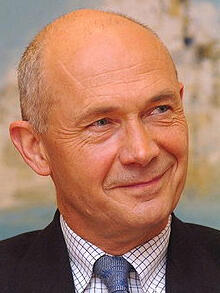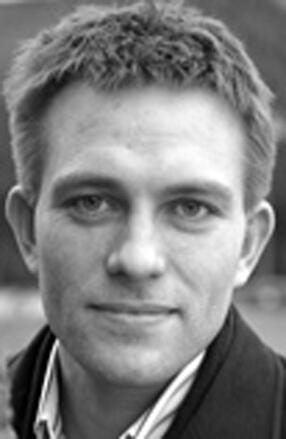Too early to judge Japan's economic strategy, Stanford economist says
Though some signs point to Japan falling into recession, Stanford economist Takeo Hoshi disagrees and says it is premature to judge the effectiveness of Japan's new approach to its economy. Not enough time has passed for the reforms to produce results.
Despite a recent slowdown, time will tell if Japan has charted the right economic course after more than 15 years of deflation, says a Stanford economist.
The Stanford News Service recently interviewed economics professor Takeo Hoshi of Stanford's Walter H. Shorenstein Asia-Pacific Research Center about Japan's economy – the third largest in the world.
In the last two years, Japan undertook a new economic direction in adopting fiscal reforms known as "Abenomics," which refers to its principal advocate, Japanese Prime Minister Shinzō Abe. Abenomics consists of monetary policy, fiscal policy and economic growth strategies to encourage private investment. But new data suggest that Japan may have fallen into a recession, which adds to worries about the slowing global economy.
Is Japanese Prime Minister Shinzo Abe’s "Abenomics" working?
It is too early to tell. Abenomics is not failing – yet. It has three pillars or "arrows," as they are often called. The first arrow – monetary expansion – has succeeded. Japan is out of deflation, which had lasted more than 15 years. The inflation rate has not reached the target rate of 2 percent and is recently falling a little bit, but it is away from zero. The postponement of the consumption tax increase that was announced last week was a step back on the efforts to reduce the budget deficits, which is considered to be a part of the second arrow (flexible fiscal policy). However, some people in the government have started to argue that fiscal consolidation has never been a part of the second arrow.
According to Abe, the government will implement a consumption tax rate hike in April 2017 – it will rise from 8 percent to 10 percent. This time, the law will not include an escape clause, which made the earlier one contingent on economic conditions. It was also announced that the government will develop a real plan to achieve a fiscal surplus by a certain date. These efforts may lead to a credible plan to reach fiscal sustainability. So, it is too early to say if this second arrow of Abenomics has failed.
The third arrow is the growth strategy. The original strategy announced in June 2013 lacked focus, but the revised version enacted in June 2014 offers 10 focus areas, some of which are quite sensible. The government has just begun on some of these economic reforms. It is way too early to tell if these efforts to restore growth in Japan will prove fruitful.
Will the Japanese recession have painful implications for the United States?
I would not say Japan is in recession now. Many people say that Japan is in recession because the first preliminary estimate of the third quarter real GDP growth came out negative. With the negative growth in the second quarter, Japan's economic condition satisfies a standard definition of recession (two consecutive quarters of negative growth). But the negative growth in the second quarter was inevitable because the demand was shifted from the second quarter to the first quarter in anticipation of the consumption tax hike on April 1. People shifted the timing of durable consumption goods purchase from the second quarter to the first quarter. So, the "true" negative growth has been observed only for a quarter.
Even the negative growth in the third quarter may not really signal a serious trouble. First, the negative growth disappears if we exclude the change in inventory. In other words, the production was down from the second quarter but the demand – or sales – did not fall. Also, many people expect the second preliminary estimate for third quarter growth that will be published on Dec. 8 will be revised higher.
Will this hurt the global economy?
If Japan was in recession, that would hurt the rest of the world, especially when the economies in Europe are weak and China is slowing down. But I don't think Japan is in recession – yet.
What would have been a better strategy than "Abenomics?"
Abenomics has been better than any other alternatives that have been tried in Japan. The Bank of Japan finally stopped its deflationary policy. Abenomics also showed some early promise in economic reforms, which were tried before only in piecemeal ways.
Assuming the Liberal Democratic Party retains power and Prime Minister Abe returns as the prime minister after the next election – which seems to be a safe assumption – the government will continue Abenomics with a renewed commitment to fiscal reform and growth, I hope.
What is the lesson for countries around the world?
Many people have prematurely declared the "failure" of Abenomics. I don't think their assessment is correct, but the government could have done better by implementing some easier economic reforms in the beginning – and calling attention to its early successes. This could have included, for example, reducing the barriers to start new businesses.
Clifton Parker is a writer for the Stanford News Service.






